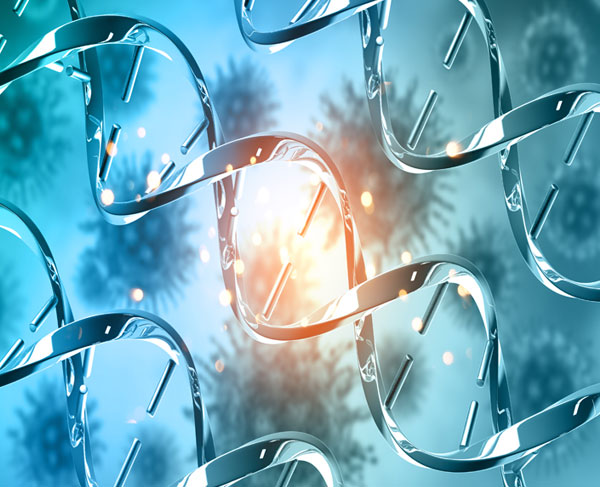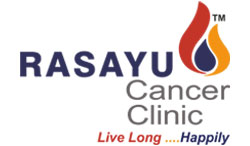Cancer Types
- Bladder Cancer
- Bone Cancer
- Breast Cancer
- Cervical Cancer
- Colorectal Cancer
- Endometrial Cancer
- Head & Neck Cancer
- Kidney Cancer
- Laryngeal Cancer
- Leukaemia
- Liver Cancer
- Lung Cancer
- Multiple Myeloma
- Nasopharyngeal Cancer
- Non-Hodgkin's Lymphoma
- Oesophagus Cancer
- Oral Cancer
- Ovarian Cancer
- Pancreatic Cancer
- Prostate Cancer
- Skin Cancer
- Stomach Cancer
- Testicular Cancer
- Thyroid Cancer
Opening Hours
- Monday - Saturday 10:00 am - 07.00 pm

Stomach Cancer
- Stomach Cancer is also called Gastric cancer which begins when healthy cells in the stomach become abnormal and grow uncontrollably.
- Stomach Cancer is much more common in other parts of the world, particularly in less developed countries.
- Stomach ranks 5th in the overall least of most common cancers and makes up for 5.7% of the new cancer cases per year.
- Death rate due to this cancer type is 5.8% and the 5-year survival rate is 69%; if the cancer has spread to surrounding tissues or organs and/or the regional lymph nodes, the 5-year survival rate is 31% while if it spreads to distant parts of the body, the 5-year survival rate is 5%.
- It is a leading cause of cancer related deaths in the world.
- Stomach cancers types :
– Adenocarcinoma
– Lymphoma
– Gastric Sarcoma
– Neuro Endocrine Tumors
Causes
- Diet – Salt rich and certain preserved food increases the risk of Stomach cancer. Non-vegetarians (especially red meat-eating population) are at higher risk of developing Stomach cancer than vegetarians. A diet with low fruits and vegetables also increases risk of Stomach cancer.
- Age – Stomach cancer is more commonly found in people aged 55 or more.
- Helicobacter pylori infection – H. pylori is a bacterial pathogen that selectively colonizes the inner lining of stomach. Infection with H. pylori causes chronic inflammation and significantly increases the risk of developing duodenal and gastric ulcer disease and gastric cancer. Infection with H. pylori is the strongest known risk factor for gastric cancer.
- Tobacco and Alcohol.
- Exposure to Radiation – Exposure to radiation increases the risk of developing Stomach cancer.
- Lowered immunity.
Carcinogenic agents with sufficient evidence in humans
- Helicobacter pylori.
- Rubber production industry.
- Tobacco smoking.
- X-radiation, gamma-radiation.
Agents with limited evidence in humans
- Asbestos (all forms).
- Epstein-Barr virus.
- Lead compounds.
- Inorganic Nitrate or nitrite (ingested) under conditions that result in endogenous nitrosation.
- Pickled vegetables (traditional Asian).
- Consumption of processed meat.
- Salted fish.
- Other medical conditions – Medical conditions like acid reflux, pernicious anemia, surgery like removal of vagus nerve and part of stomach increases the risk of Stomach cancer.
- Other cancer – Men suffering from Prostate cancer, Breast cancer, Bladder or Testicular cancer can develop Stomach cancer. Whereas women with Ovarian cancer, Breast cancer or Cervical cancer carries more risk of developing Stomach cancer.
Signs and Symptoms
- Bloating after meal.
- Heartburn – Burning sensation in chest.
- Nausea.
- Loss of Appetite etc.
As Stomach tumors grow, person may have more serious symptoms, such as :
- Pain in Stomach
- Blood in Stool
- Vomiting
- Unexplained weight loss
- Trouble in Swallowing
- Yellowish eyes or skin
- Swelling in Stomach
- Constipation or loose motions
- Weakness or feeling tired
- Heart burn
Investigations / Screening
- Physical Examination and History – An examination of the body to check general signs of health, including checking for signs of disease, such as lump or anything else that seems unusual. A history of the patient’s health habits and past illnesses and treatments is taken into consideration.
- Biopsy – Gastric tissue biopsy is the removal of stomach tissue for examination. A gastric tissue biopsy and culture can help detect cancer and infections most commonly Helicobacter pylori, the bacteria that can cause Stomach cancer.
- PET Scan / MRI / CT Scan – Imaging tests used to look for Stomach cancer include computerized tomography (CT) scan.
- Upper GI Endoscopy – It is investigation of choice. It enables visualization of oesophagus, stomach and duodenum with biopsy and of any suspicious lesion.
- Endoscopic Ultrasound – It uses high-frequency sound waves to produce detailed images of the lining and walls of digestive tract and nearby organs such as the pancreas, the liver and the lymph nodes.
- Biomarkers Investigations.
- Other investigation Reports – Faecal occult blood test can indicate the status of stomach cancer.
Treatment
- To plan personalised treatment for each individual patient as every individual is different even if they have the same type of cancer.
- To improve health related quality of life (QOL) in all types and stages of cancer patients.
- To plan for partial or total regression of tumour depending on the nature of tumors.
- To increase overall survival (OS) of patients.
- To increase disease free survival (DFS) where complete resection of tumour is achieved.
- To provide a treatment option to patients who are refractory to conventional treatments like chemotherapy / radiotherapy / immunotherapy etc.
- To reduce the rate of growth of the tumor in recurrent and advanced staged cases.
- To increase progression free survival in advance cases.
- To reduce impact of symptoms related to progression of disease.
- To improve confidence of patients.
- To provide palliative support in end-of- life cancer cases.
- To add happiness and extension of life to cancer patients.
- To compliment other therapies like chemotherapy, radiotherapy in a synergistic way.
- To reduce severity or adverse effects of other conventional treatment. This reduces incidence and frequency of hospitalization.
- It is pertinent to note that Rasayu Cancer Clinic does not claim or blame anything while communicating any aspect to cancer patients.
- Rasayu Cancer Clinic focuses on Ayurveda fundamental based therapies.
- Rasayu Cancer Clinic believes in continuous improvement in service and science.
- Rasayu Cancer Clinic always advocates patient centric approach which leads to long and happy life of cancer patients.
- Every patient has a right to choose the therapy.
- Rasayu Cancer Clinic never imposes Rasayana therapy on patients but helps them to take the right decision, hence making patients/ relatives well aware about the disease and possible outcomes along with its risk benefit and cost benefit ratios.
- Rasayu Cancer Clinic is well connected with global updates in cancer care and therapies, through advisors and collaborations with national and international institutes.
Surgery
- Surgery is definitive treatment for Stomach carcinoma.
- Partial or total removal of stomach is done depending on size and location of tumor and the surrounding lymph nodes.
- Palliative operations can be performed to control pain and or relieve obstruction in patients with advance disease.
- For a very early stage (T1a) cancer, some doctors may recommend a non-surgical treatment called an endoscopic mucosal resection which is the removal of the tumor with an endoscope.
- Regional lymph nodes are often removed during surgery because the cancer may have spread to those lymph nodes. This is called a lymphadenectomy.
- Side effects of Surgery for Stomach Cancer – Click Here
Chemotherapy
- Treatment uses medicine to weaken and destroy cancer cells at the original cancer site and any cancer cells that may have spread to other parts of the body.
- While destroying cancer cells, it destroys fast dividing normal cells, which further creates multiple side effects.
- It is suggested before or after surgery or to reduce or control symptoms in advance stages.
- Side effects of Chemotherapy – Click Here
- Adverse drug reactions (ADRs) of Chemotherapy – Click Here
Targeted Therapy
- These newer drugs are different because they fight only cancer cells.
- Other treatments, like chemo and radiation, can kill healthy cells along with diseased ones. As a result,
targeted therapies have fewer side effects than these other treatments. - Targeted Therapy Side Effects check the following link – Click Here
Radiation
- Radiation therapy uses targeted energy (e.g., X-rays, radioactive substances) to destroy cancer cells.
- Patients usually receive external-beam radiation therapy, which is given from an external source (machine).
- Radiation therapy may be used before surgery to shrink the size of the tumor or after surgery to destroy any remaining cancer cells.
- Radiation treatment may help to destroy cancer cells that remain after Stomach cancer surgery, shrink tumors, alleviate pain or decrease the risk of cancer recurrence in the same area of the body.
- Click here to know more about the side effects of radiation therapy for stomach cancer – Click Here
Rasayu Cancer Clinic Rasayan Treatment Protocol – To know more please click here
Rasayu Therapy is recommended for those :
- Who voluntarily opted for this treatment as their first choice.
- Who are disenchanted with the past treatments.
- Who do not see any other options of treatment.
- Who are looking for personalized treatment plan.
- Who desire a convenient home-based oral therapy which is easy to consume.
- Who are susceptible to acquire hospital borne infections/ complications, hence not willing to be hospitalised.
- Who are looking for favourable risk benefit ratio.
- Who desire to improve Quality Of Life benchmarks based on global standards and monitored regularly.
- Who are involved in decision making for choice of treatment.
- Who are willing to be involved in monitoring the efficacy of Rasayana Therapy.
- Who believe in the transparency of the process by conducting regular investigations by biochemical parameters/ hi tech imaging techniques like PET scan etc.
- Who are equally sensitive to the patient, the care givers and the family.
- Which can be taken with other treatments including Chemotherapy / Radiotherapy.
Disclaimer : This Website contains certain links such as You Tube links, research paper links / website links / audio visuals / internet information already available in public domain. The information contained in the audio visuals is meant for use by qualified Medical Professionals. The content of the links etc has been made available for informational and educational purposes only. Rasayu Cancer Clinic and its associates do not make any warranties with respect to the accuracy, applicability, fitness, or the completeness of the content of such links etc. The information contained in such links represents the views and opinions of the original creator of such links and are not views endorsed by the Rasayu fraternity.



